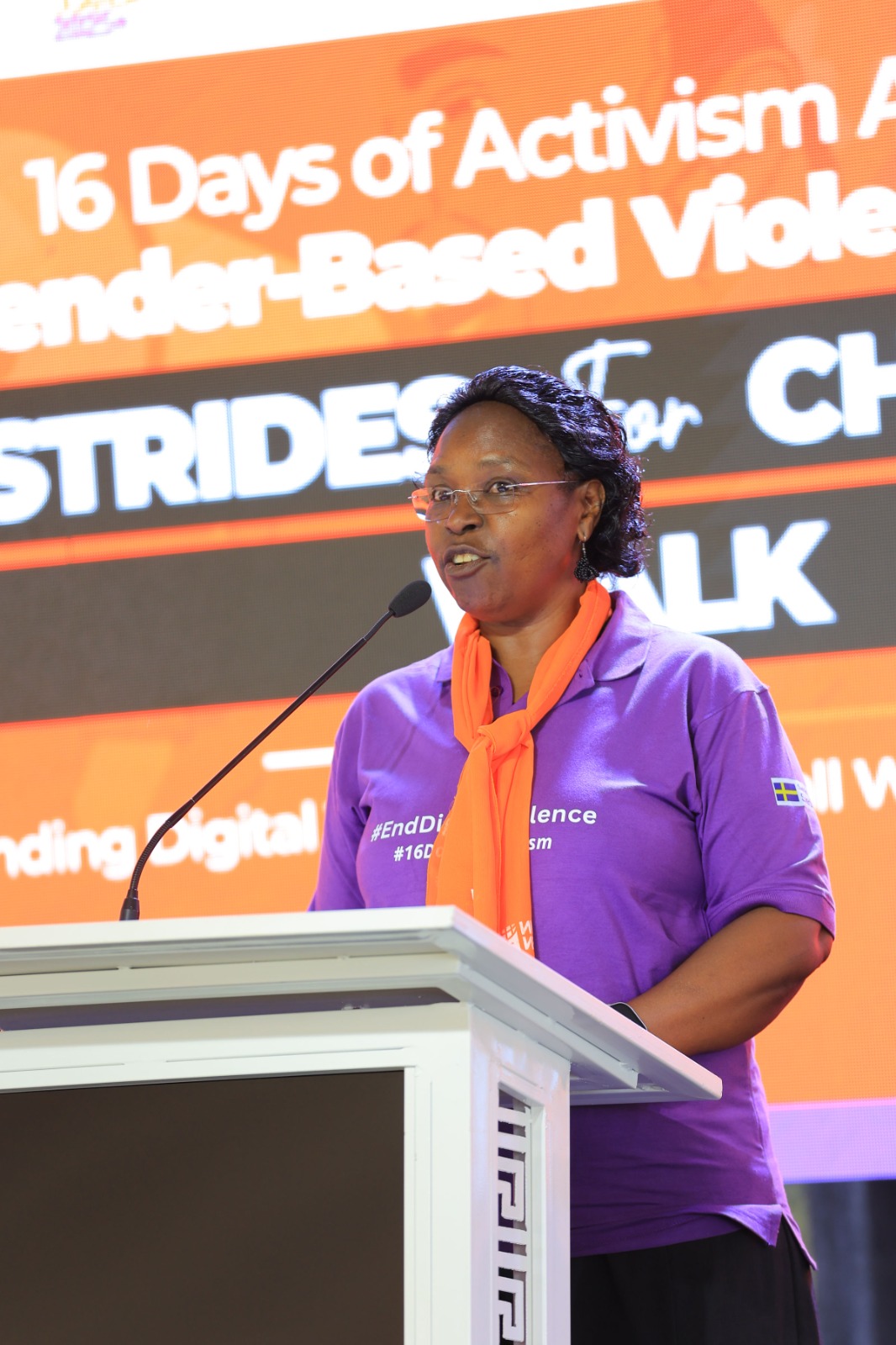Uganda has taken center stage in a historic and long-overdue moment, hosting the global launch of the 16 Days of Activism Against Gender-Based Violence.
This year’s worldwide campaign has been rooted right here in Kampala, signaling not just symbolic support, but a deliberate and powerful shift toward confronting violence where it is happening—both in physical spaces and, increasingly, online.
The launch brought together a coalition driven by urgency and purpose. Sweden’s Ambassador to Uganda, H.E. Maria Håkansson, stood alongside the United Nations Population Fund (UNFPA) and Makerere University to reaffirm a united commitment to advancing gender equality.
The tone was refreshingly direct. Ambassador Håkansson spoke openly about the limitations of a conversation that stays within conference-room walls, saying she felt compelled to step into spaces that create real, visible change.
“I found myself in these conference rooms talking to other women about gender-based violence,” she noted. “I felt it could be important solidarity, but it might not be how we change things.”
This year’s global theme Technology-Facilitated Violence Against Women and Girls could not be more urgent. As one in three women worldwide continues to experience gender-based violence, the digital world has become a new frontier for harm.
Online harassment, non-consensual sharing of images, and cyberstalking are increasingly common, expanding the reach of abuse beyond what traditional laws and responses were designed to handle.
Ambassador Håkansson emphasised that whether violence happens in homes, on the streets, or behind a screen, its impact is the same: it robs women and girls of their freedom, dignity, and safety, and it must never be accepted as normal.
A central message echoed throughout the launch: gender equality is not a women’s fight it is a societal responsibility. Real progress requires more than legislation.
It demands a deep cultural shift, and that shift cannot happen without men. In a bold, strategic move, the campaign introduced 16 Male Change Makers, a diverse group of influential Ugandan men from the arts, academia, culture, and media.
These men will lead an online movement throughout the 16 Days from November 25th to December 10th—using their voices to challenge harmful norms, publicly reject violence, and encourage a model of masculinity rooted in respect and accountability.
UNFPA’s Country Representative, Kristine Blokhus, reinforced this call, describing the theme as “a call to courage and a call to conscience.”
She highlighted the rapid rise of digital forms of violence and the reality that legal frameworks alone are not enough. “This violence has evolved,” she said, “and we also need to evolve.”
The Change Makers, each using their platforms to spread messages like “My lyrics will not harm” and “Culture demands protection,” represent a new direction in the fight against gender-based violence one that insists on visibility, responsibility, and collective action.
Their participation symbolises a turning point, placing men not on the sidelines but at the heart of the movement for equality.
As the 16 Days of Activism begin, the message rings clear: this is not merely a campaign marked on a calendar, but a continuous promise to build a society where women and girls live free from violence. And for the first time in a long time, men are stepping forward not as bystanders, but as partners in change.


